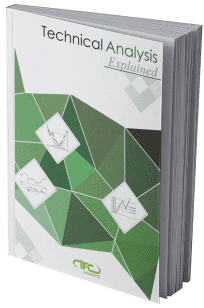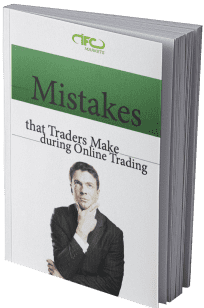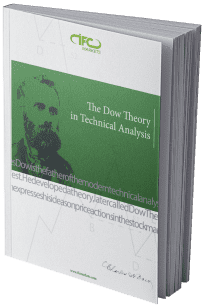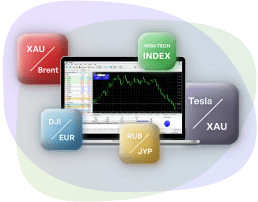- Education
- Forex and CFD Trading Books
- CFD Trading for Beginners PDF
CFD Trading for Beginners PDF

Financial markets, including Stock trading, have also embraced this digital transformation, offering a more efficient trading instrument known as CFD trading. This CFD trading for beginners PDF aims to provide a comprehensive understanding of trading, empowering investors to navigate this innovative market and achieve success in their trading endeavors.
Welcome to the world of CFDs! Discover how this trading instrument can open new opportunities and enhance your trading journey in our CFD trading PDF.
CFD Trading PDF
| Author | Sona Matasyan |
| Language | English |
| Genre | Finance, Education |
| Educational use | CFD Trading Techniques |
| Pages | 16 |
| Organization | IFC Markets |
| Price | Free |
| Book format | |
| Publish date | 2020 |
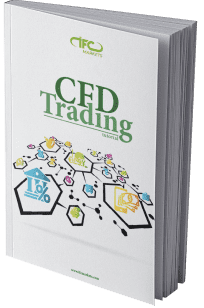
CFD Trading Tutorial
- Choose Your CFD Provider
- Trading in Action
- Consider and Manage Your Risks
Learn CFD Trading Step by Step PDF
Brief Summary of CFD Trading PDF
1. The Basics You Should Know About CFD Trading
CFDs are relatively new trading instruments. Due to a number of useful features, CFDs are gradually becoming more and more popular. Nowadays, more and more traders try themselves in CFD trading. Every year, new CFD books and tutorials are being published, seminars and trainings are being organized, which leads to the growth of popularity of this financial product.
2. Choose Your CFD Provider
The growing interest in this derivative product has resulted in emergence of a large number of CFD providers. That is why the choice of your CFD provider has really become a difficult business. However, it can be simplified if you define specific criteria which will guide you on your way to orientate. Additionally, you can get use of guidelines that we offer
3. Trading in Action
As already has been mentioned in Chapter 1, “going long” means you open a buy position, predicting its price to raise, aiming to sell it later with higher price, thus making profit
4. Consider and Manage Your Risks
Knowing how to trade CFDs is not enough to say that you are an experienced trader. What makes you an experienced trader is your ability to manage your trading and to protect your positions from any losses. CFD trade is a risky business, because of being based on margin trading.
CFD Trading for Beginners PDF
We invite you to delve into the captivating realm of Contract for Difference (CFD) trading. Throughout history, humankind has sought new opportunities and solutions in the financial market, and CFDs are a shining example of innovation. While instruments like futures and options have deep-rooted histories, CFDs emerged in the early 1990s as a novel and revolutionary addition to the trading landscape.
The brainchild of economists Brian Keelan and Jon Wood, CFDs owe their origins to the London derivative brokerage firm, Smith New Court, which later found its way into the arms of Merrill Lynch. The impetus behind inventing CFDs was the need for clients to hedge their positions on the London Stock Exchange effectively. With CFDs, they found the perfect tool for going short and trading on margin while enjoying the added benefit of avoiding stamp duty.
Initially, CFDs gained traction among hedge funds, but their appeal quickly spread like wildfire among retail traders. The first company to provide CFDs was GNI, with the introduction of the GNI Touch online trading system, granting traders direct access to the London Stock Exchange's live quotes for each asset.
As time progressed, CFD trading expanded its reach, with exchanges in various countries embracing this innovative instrument. Australia led the charge in 2002, and since then, CFD trading has found its way into the exchanges of Germany, France, Norway, Italy, Singapore, and more. The growing popularity of CFDs is evidenced by the increasing number of traders entering the market, complemented by a burgeoning array of CFD books, tutorials, seminars, and training programs.
So, what exactly is a CFD? A Contract for Difference is a derivative financial product whose value is derived from the value of another underlying asset, such as a stock, index, or commodity. The essence of CFD trading lies in speculating on price movements without physically owning the asset. Whether it's trading Google stocks, exploring European exchanges, or venturing into commodities like oil, CFDs offer traders a diverse array of options.
The attractiveness of CFD trading lies in several distinct features. Leverage stands out as a key advantage, allowing traders to amplify potential returns while only investing a fraction of their capital. However, it's essential to tread carefully, as leverage magnifies both profits and losses.
Another unique aspect of CFDs is their versatility – traders can capitalize on both rising and falling markets, as they don't actually possess the underlying asset. This flexibility sets CFDs apart from traditional stock trading. Additionally, CFDs do not have an expiry date, freeing traders from time constraints.
The allure of CFD trading extends to low commissions, seamless access to international markets, and the absence of stamp duty, further sweetening the deal for savvy investors. By embracing CFDs, traders open the door to a world of financial opportunities, unshackled by conventional trading limitations.
CFD Trading for Beginners
For beginners seeking to gain a comprehensive understanding of CFD trading, I recommend exploring the "CFD Trading for Beginners" PDF, where you can delve into more detail about various aspects of CFD trading, including risk management, leverage, different types of CFDs, and strategies to maximize profits while minimizing risks.
This detailed resource provides valuable insights and practical tips to help newcomers navigate the world of CFD trading confidently. By arming themselves with knowledge from this PDF, beginners can make informed decisions, develop effective trading strategies, and embark on their CFD trading journey with greater confidence.
Technical Analysis and Trading Books (PDF)

